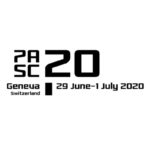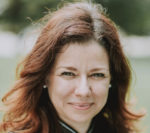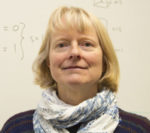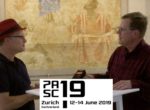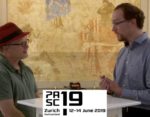The PASC20 conference in Geneva has been postponed to 2021. The new dates for the conference – PASC21 – are July 5-7, 2021, at the same location – the University of Geneva in Switzerland. “We hope that you will be able to join us next year for an engaging in-person event. We are pleased to announce that our plenary speakers have confirmed their availability for PASC21. Contributors whose submissions have been accepted for presentation at PASC20 will be given the opportunity to provide updated abstracts. Presenters and minisymposia organizers will be contacted separately to confirm their participation and the content of their presentations. Additionally, we foresee a call for new contributions in late 2020.”
ISC 2020 Conference Converting to Virtual Event Due to Pandemic
The ISC 2020 Conference in Frankfurt has been cancelled due to the global pandemic and instead will be broadcast as a virtual event. “It is with a heavy heart we announce our decision to cancel ISC 2020 in Frankfurt, Germany,” writes the ISC co-chairs Martin and Thomas Meuer. “In its place we will offer a leaner version of the conference in digital form from June 22 to 24. It will be free so everyone in the HPC community can benefit from it. We will be revealing the program details in the coming weeks.”
PASC20 talk to explore Data Landscapes to Rescue Species from Extinction
Today PASC20 announced that this year’s Public Lecture will be presented by Dalia Conde, Professor at the University of Southern Denmark and Director of Science at Species360. The lecture will focus on her team’s efforts in fighting one of the greatest current concerns of our global community: biodiversity loss. “In this keynote talk, we will unveil the results of a global initiative aiming to map, quantify and disseminate species open information to conservation policymakers globally. By developing partnerships to map information and generate development platforms, workflows and storage between open biodiversity repositories, we will outline how computational methods can be applied to novel scientific domains.”
Vivien Kendon from Durham University to Keynote PASC20 in Geneva
Today the PASC20 conference announced that Vivien Kendon from Durham University will deliver a keynote talk on quantum computing. With a theme of New Challenges, New Computing Paradigms, the event takes place June 29 – July 1 in Geneva, Switzerland. “Quantum computing promises more efficient computation for some important types of problems, such as simulation of quantum systems, non-convex optimization, and (famously) factoring large semi-primes. However, the first useful quantum computers will be limited in what they can do. Applying them to bottlenecks that are hard for classical computers is key to extracting the best performance out of combined classical and quantum hardware.”
Call for Submissions: PASC20 in Geneva
The PASC20 conference has issued its Call for Submissions. The event takes place June 29 – July 1, 2020 in Geneva, Switzerland. “PASC20 is an international and interdisciplinary platform for the exchange of competences in scientific computing and computational science, with a strong focus on methods, tools, algorithms, application challenges, and novel techniques and usage of high performance computing.”
Why PASC19 is a great show for the International Science Community
In this video from PASC19 in Zurich, Mike Heroux from Sandia National Labs shares the reasons he attends the conference every year. As a multi-disciplinary show, PASC gives him the opportunity to keep up with the international science community. “PASC19 is the sixth edition of the PASC Conference series, an international platform for the exchange of competences in scientific computing and computational science, with a strong focus on methods, tools, algorithms, application challenges, and novel techniques and usage of high performance computing.”
PASC19 Evolves into an International Conference on Computational Science
In this video from PASC19, Torsten Hoefler from ETH Zurich describes how PASC19 has grown into an international conference with over 60 percent of attendees from outside Switzerland. After that, he describes a new groundbreaking programming model his team is developing that centers around the minimization of data movement for computation.

